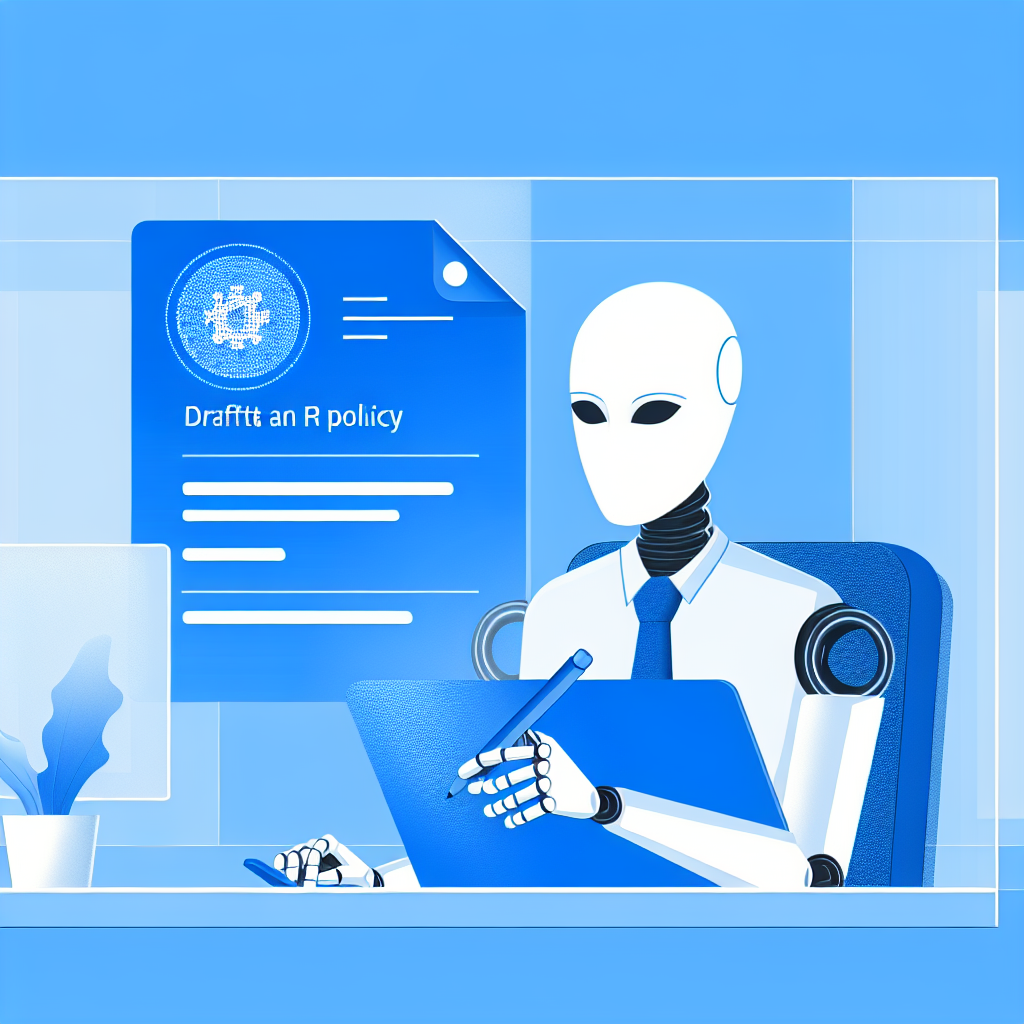
In an era where technology increasingly influences the business landscape, human resources (HR) professionals are exploring innovative solutions to optimise workflows and enhance policy development. Among these tools is ChatGPT, an AI model developed by OpenAI, which has garnered attention for its potential in drafting HR policies. This blog post delves into the effectiveness of using ChatGPT for this purpose, examining its significance, current trends, key benefits, and ethical considerations that HR professionals should be aware of.
Can ChatGPT Write an HR Policy?
As organisations navigate a labyrinth of compliance issues and ever-changing regulations, the need for efficient policy drafting has never been more pronounced. AI tools like ChatGPT offer a promising solution. However, it is essential to evaluate its efficacy critically.
Significance of Using ChatGPT
ChatGPT can streamline the process of creating and updating HR policies, potentially saving time and increasing efficiency across the board. Gemma Dale, a senior lecturer at Liverpool John Moores University, suggests that while ChatGPT can serve as a useful starting point for drafting policies, significant editing and refinement may be required to guarantee they are fit for purpose and compliant with legal standards. This indicates that while AI can expedite initial drafts, human oversight is indispensable.
Current Trends in AI and HR
The trend of employing AI in human resources is growing rapidly. From drafting job descriptions to creating employee handbooks and correspondence, ChatGPT’s capabilities extend well beyond policy writing. However, experts advocate for a cautious approach. It’s crucial to acknowledge that critical documents like HR policies should not rely solely on AI-generated content without careful review and amendments.
Key Benefits of Using ChatGPT for Drafting Policies
- Efficiency: ChatGPT can generate HR policies quickly, which is particularly advantageous for larger organisations where policy updates occur frequently.
- Compliance: By offering a foundational structure, ChatGPT aids in ensuring policies align with relevant laws and regulations. However, thorough compliance checks remain essential.
- Personalisation: While ChatGPT can create draft policies, it is vital to adapt these to reflect the specific culture and values of the organisation. Personalised policies resonate better with employees, promoting adherence and understanding.
- Guidance: ChatGPT can also provide insights into defining the objectives and scope of various policies, making the policymaking process smoother.
Ethical Considerations for HR Professionals
As with any technology, using ChatGPT for policy creation comes with its own set of ethical considerations that HR professionals must navigate.
Accuracy and Validation
The output generated by ChatGPT should be treated with caution. HR professionals need to fact-check and conduct further research to validate the accuracy of AI-generated content before integrating it into organisational processes. Implementing a robust verification system is essential for ensuring that all policies comply with legislation and best practices.
Security Measures
Given that ChatGPT may still be in its experimental phase, concerns surrounding security arise. To mitigate risks, it is critical to avoid sharing sensitive or personal information through AI tools until robust security protocols are established.
Promoting Consistency
Employees increasingly utilise ChatGPT, which may lead to inconsistent policies if not managed correctly. Developing guidelines on “How to Use ChatGPT Safely” can help maintain consistency and compliance across the organisation. Providing educational resources to employees ensures that the tool is employed effectively, while also safeguarding against potential pitfalls.
Effective Implementation of ChatGPT in HR Policy Drafting
To harness the benefits of ChatGPT for HR policy drafting while safeguarding against potential issues, consider the following implementation strategies:
1. Establish Clear Guidelines
HR professionals should create guidelines that outline appropriate use of ChatGPT. These guidelines might include specifying which documents can have preliminary drafts generated by the AI versus those that require human authorship from the start.
2. Enhance Collaboration
Encouraging collaboration between AI tools and human expertise can lead to better policy outcomes. HR teams should work alongside ChatGPT to refine drafts, ensuring that the content meets organisational needs and legal obligations.
3. Continuous Training and Development
HR teams should stay updated on the latest developments in AI technology to maximise its utility in policy drafting. Continuous training on how to effectively integrate AI into HR processes can empower professionals to use it more effectively.
4. Engage Stakeholders
Involving key stakeholders in the policy development process ensures that diverse perspectives are taken into account. This approach can reveal insights that may not be captured by AI-generated content alone.
5. Regular Review and Updates
As policies need to evolve alongside changes in legislation and company culture, conducting regular reviews to update drafts generated by ChatGPT is vital. A structured approach for revisiting these documents can help maintain their relevance and accuracy.
Conclusion
ChatGPT presents HR professionals with a valuable tool for drafting initial policy documents, facilitating an efficient approach to policy development. However, it is essential to balance the speed and efficiency of AI-generated content with necessary human oversight. By ensuring that policies are reviewed, customised, and anchored in legal compliance, organisations can leverage AI capabilities to streamline their processes while maintaining integrity and quality in their HR practices.
As the landscape of human resources continues to evolve, embracing technology will play a vital role in shaping effective policy frameworks. With the right strategies in place, ChatGPT can contribute significantly to the optimisation of HR functions.
For further insights, you can explore the following sources:
- People Management: “Can ChatGPT write HR policy?”
- AIHR: “ChatGPT for HR in 2024: What Can ChatGPT Do?”
- Workable: “How to write better HR policies with ChatGPT: a guide”
- SHRM: “ChatGPT and HR: A Primer for HR Professionals”
Vadim Kouznetsov is a distinguished entrepreneur and the visionary founder and CEO of JobXDubai.com, the UAE’s rapidly expanding job board. Renowned for his expertise in bridging the gap between job seekers and employment opportunities, Vadim has become a leading authority in the recruitment and job market of Dubai.
